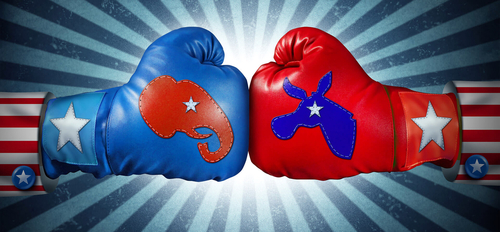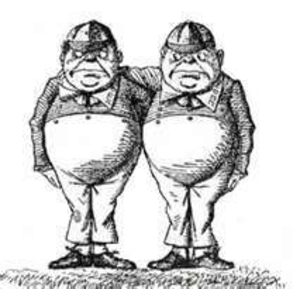Faced with the choice between voting for Donald Trump or Joe Biden, Gallup finds that one-quarter of Americans say "neither would be a good president." Unsurprisingly, some are inclined to vote for a third-party candidate. I understand that urge, having voted for Libertarian nominee Gary Johnson in 2016. But the vast policy differences in 2020 make it imperative to vote for a major-party candidate.

When electing a president – our four-year demi-king – Americans tend to focus primarily on the candidate. Personal appearance, health, self-presentation, stamina, priorities, common sense, articulation, personality, accomplishments, credentials, family, policies – every element is scrutinized and assayed. And rightly so, for even minor details about the person at the top can have vast ramifications, directly affecting the destiny of 330 million people and indirectly the whole globe.
It makes sense to focus intensely on those issues in the primary, when one has a choice among two or more candidates with a roughly similar outlook. In the general election, however, the candidate's superficial qualities matter much less in deciding whom to vote for.
That's because the candidate heads a vast team that enters government with his election, from cabinet secretaries to the military chief of staff to federal judges and many, many others, including those furtive "senior assistants to the acting deputy" types and other bureaucrats. In the aggregate, they reduce the importance of the leader. A vote for the candidate is also an implicit vote for the team.

Rather than the person, I advise a focus on a party's overall outlook. Does it take pride in American history or emphasize its faults? Does it favor the original Constitution or a living version of it? Does it emphasize individualism or equality? Does it focus on the free market or government oversight? Does it see the United States more as a force for good or ill in the world?
From these first principles derive the myriad of specific policies that characterize an administration and make it unique. These, not the president's appearance or college grades, determine his place in history and the trajectory of the country. Indeed, that the team's views and policies are often sharper-edged than the president's further emphasizes the central importance of his outlook.
Personally, I favor the first in each of those dualities: a proud view of the United States, caution about the Constitution, and an emphasis on individualism and free markets. In this election, only one of the two major parties agrees with my outlook. Despite my intense aversion to Trump's immorality, vulgarity, and egotism, these now worry me less than the Democrats' uniquely radical program. And so, I publicly endorsed him. To quote journalist Bernard Goldberg, "He is a detestable man. And I hope he wins."
 The Boston Globe illustration of this article. |
Why then did I vote Libertarian in 2016? Because Trump appeared to be a populist out to wreck the Republican party, the conservative movement, and even American democracy. Then, to my surprise, he governed as a conservative on those issues I consider most important. So, consistent with the argument presented here, I put aside my distaste and fears.
The same logic holds for Democrats who propose a distinctive set of policies, from halting climate change to battling systemic racism. A vote for Joe Biden not only amounts to a vote for his program and his team but, given his age, it doubly implies a vote for the Democrats who will accompany him into government, from wife Jill and vice-presidential running-mate Senator Kamala Harris to the host of Obama-era personnel primed to take up positions higher than in their last round.
It's probably forlorn to wish that campaign coverage devote less attention to inside baseball, polls, scandals, and personality quirks, and more to the grand visions of the major parties. It would be nice if, every so often, reporters and commentators stood back from the immediacy of the horse race and considered the choice – an exceptionally profound one this year, with truly momentous consequences – facing the voters. But, like children, they tend to be more entranced by the wrapping of the package than its contents.
 I urge fellow voters to dwell on the strikingly different platforms of the two major parties (no Tweedledum and Tweedledee these) and support whichever one better suits their own views; and to do so regardless of the candidates' many failings.
I urge fellow voters to dwell on the strikingly different platforms of the two major parties (no Tweedledum and Tweedledee these) and support whichever one better suits their own views; and to do so regardless of the candidates' many failings.
Daniel Pipes is president of the Middle East Forum. He has worked in five presidential administrations. © 2020 by Daniel Pipes. All rights reserved.
